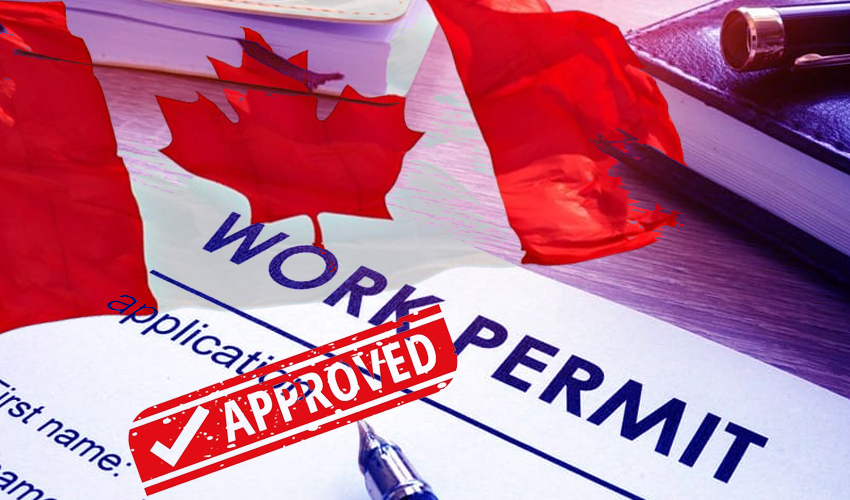
Navigating Canada's Path to Employment for International Graduates
Navigating Canada’s Path to Employment for International Graduates
Canada’s Post-Graduate Work Permit (PGWP) program is a golden opportunity for international students and recent graduates to gain valuable work experience.
If you’ve completed your studies in Canada, the PGWP can help you transition from student life to a professional career.
This blog will cover everything you need about the Post-Graduate Work Permit Canada, from eligibility criteria to the application process.

What is a Postgraduate Work Permit in Canada?
A Post-Graduate Work Permit (PGWP) is an open work permit allowing recent Canadian graduate graduates to live and work in Canada.
Unlike employer-specific work permits, the PGWP grants the flexibility to work for any employer, anywhere in Canada. This freedom makes it an attractive option for graduates seeking North American work experience.
The PGWP is part of Canada’s strategy to attract and retain international talent. By allowing graduates to work in Canada, the country benefits from their skills and knowledge and helps them integrate better into Canadian society.
This experience can be a stepping stone to permanent residency, further solidifying their place in Canada.
The duration of a PGWP depends on the length of your study program. If your program was between 8 months and 2 years, the PGWP is typically valid for the same duration as your program.
For programs longer than 2 years, you may receive a PGWP valid for up to 3 years.
Post-Graduate Work Permit Eligibility
To be eligible for a Post-Graduate Work Permit Canada, you must have completed a program of study at a Designated Learning Institution (DLI).
The program must be at least 8 months long and lead to a degree, diploma, or certificate. Before applying, it’s essential to ensure that your institution and program meet these requirements.
You must apply for the PGWP within 180 days of confirmation that you have completed your program.
This could be a transcript, an official letter from the institution, or a degree/diploma certificate. Ensure all documents are to avoid any delays.
Additionally, you must have maintained full-time student status during each academic session, except for the final session (if you needed to study part-time to complete the program).
Ensure you keep records of your enrollment status, which might be required during the application process.

Post-Graduate Work Permit Processing Time
The PGWP processing time can vary depending on several factors, including the volume of applications and the completeness of your submission.
A PGWP application is processed in 80 to 180 days. However, for the most accurate information, it’s always a good idea to check the latest updates on the Immigration, Refugees, and Citizenship Canada (IRCC) website.
Submit a complete and accurate application to ensure a smooth and quick processing experience.
Any missing documents or incorrect information can lead to delays, so double-check everything before submission. Use the online application system for faster processing times compared to paper applications.
Suppose you’re in Canada, and your study permit is about to expire. In that case, you can apply for a PGWP and continue to stay in Canada under “implied status” until a decision is made on your application.
This allows you to start working immediately after submitting your PGWP application, even before you receive your work permit.
How Soon After My PGWP Expires May I Apply for a Work Permit?
You may wonder about your options once your Post-Graduate Work Permit Canada expires. The good news is that there are pathways to extend your stay and continue working in Canada.
One popular option is to apply for a Bridging Open Work Permit (BOWP), which allows you to stay in Canada while your application for permanent residence is being processed.
To be eligible for a BOWP, you must have already applied for permanent residence under one of the economic immigration programs, such as the Canadian Experience Class (CEC) or the Federal Skilled Worker Program (FSWP).
The BOWP bridges the gap between the expiry of your PGWP and the final decision on your permanent residence application.
Alternatively, if you do not qualify for a BOWP, you may apply for another type of work permit, such as an employer-specific one.
This type of permit requires a job offer from a Canadian employer, who may need to obtain a Labor Market Impact Assessment (LMIA) to prove that hiring a foreign worker will not negatively impact the Canadian labour market.
In any case, it is essential to plan your next steps well before your PGWP expires. Consult an immigration consultant or lawyer to explore all available options and ensure a seamless transition.
Conclusion
The Post-Graduate Job Permit Canada is an excellent chance for international students and recent graduates to get Canadian job experience while perhaps transitioning to permanent residence.
Understanding the qualifying criteria, application process, and possibilities for extending your stay once your PGWP expires will allow you to make informed decisions and optimise the program’s benefits.
For further information, see the IRCC’s official page on the Post-Graduate Work Permit and this complete PGWP eligibility and application guide.
Are you ready to take the next step in your Canadian journey? Apply for your PGWP today and discover the thrilling possibilities and boundless potential in the country of maple leaves.
Related Read
UK Visa Centre Lahore Moving: New Location Announced
FAQ’s
1. Can I work while my PGWP application is being processed?
Yes, if you are currently in Canada and your study permit is still valid, you can start working immediately after you apply for your PGWP, thanks to “implied status.”
2. What happens if my PGWP expires before I apply for a new work permit?
If your PGWP has expired, you must apply for a different work permit, such as a Bridging Open Work Permit (BOWP) or an employer-specific work permit, as you cannot work on an expired license.
3. How long can I stay in Canada with a BOWP?
A Bridging Open Work Permit allows you to remain in Canada while your permanent residence application is processed, typically valid until a decision is made on that application.
Let us help you yield your true academic potential for foreign education. To configure and discover an apt international enrolment strategy, get in touch!
- +923041111444
- info@edify.pk
- Edify Building, 3rd Floor, Madina Town Faisalabad
© 2026 Edify Group of Companies. All Rights Reserved.







